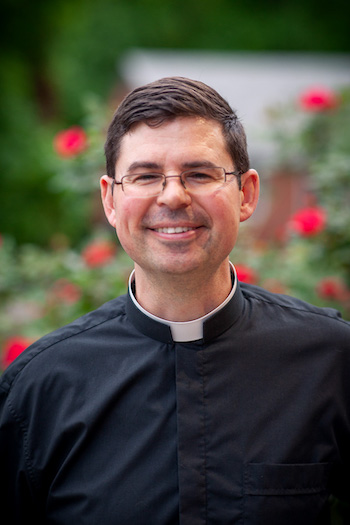My dear brothers and sisters in Christ,

I pray that you all had a blessed Thanksgiving with your families! Every day we are called to give thanks to God for every gift He provides us. Have you thanked Him for your life, faith, family (even difficult members), the food you eat, the roof over your head, the heat to warm your home, transportation to get you from one place to another, your health, and what He will provide for your salvation?
We turn to the Catechism of the Catholic Church to remind us of what and why we are to be thankful to God. In paragraph 2624 it says, “In the first community of Jerusalem, believers “devoted themselves to the apostles’ teaching and fellowship, to the breaking of bread, and the pray-ers.” 95 This sequence is characteristic of the Church’s prayer: founded on the apostolic faith; authenticated by charity; nourished in the Eucharist.”
We must notice the blessings God gives to us, the CCC states, “Blessing expresses the basic movement of Christian prayer: it is an encounter be-tween God and man. In blessing, God’s gift and man’s acceptance of it are united in dialogue with each other. The prayer of blessing is man’s re-sponse to God’s gifts: because God blesses, the human heart can in return bless the One who is the source of every blessing. Two fundamental forms express this movement: our prayer ascends in the Holy Spirit through Christ to the Father – we bless him for having blessed us; 97 it implores the grace of the Holy Spirit that descends through Christ from the Father – he blesses us.98
So why do we have adoration of the Blessed Sacrament? Back to the Catechism in paragraph 2628 “Adoration is the first attitude of man ac-knowledging that he is a creature before his Creator. It exalts the greatness of the Lord who made us99 and the almighty power of the Savior who sets us free from evil. Adoration is homage of the spirit to the “King of Glo-ry,”100 respectful silence in the presence of the “ever greater” God.101 Adoration of the thrice-holy and sovereign God of love blends with humili-ty and gives assurance to our supplications.”
Thanksgiving characterizes the prayer of the Church which, in celebrat-ing the Eucharist, reveals and becomes more fully what she is. Indeed, in the work of salvation, Christ sets creation free from sin and death to conse-crate it anew and make it return to the Father, for his glory. The thanksgiv-ing of the members of the Body participates in that of their Head.
I leave you with these insights again from our faith and teachings in the CCC, 2638 As in the prayer of petition, every event and need can become an offering of thanksgiving. The letters of St. Paul often begin and end with thanksgiving, and the Lord Jesus is always present in it:
“Give thanks in all circumstances; for this is the will of God in Christ Jesus for you”;
“Continue steadfastly in prayer, being watchful in it with thanksgiving.”
In Christ, through Mary,
Father Steiner
